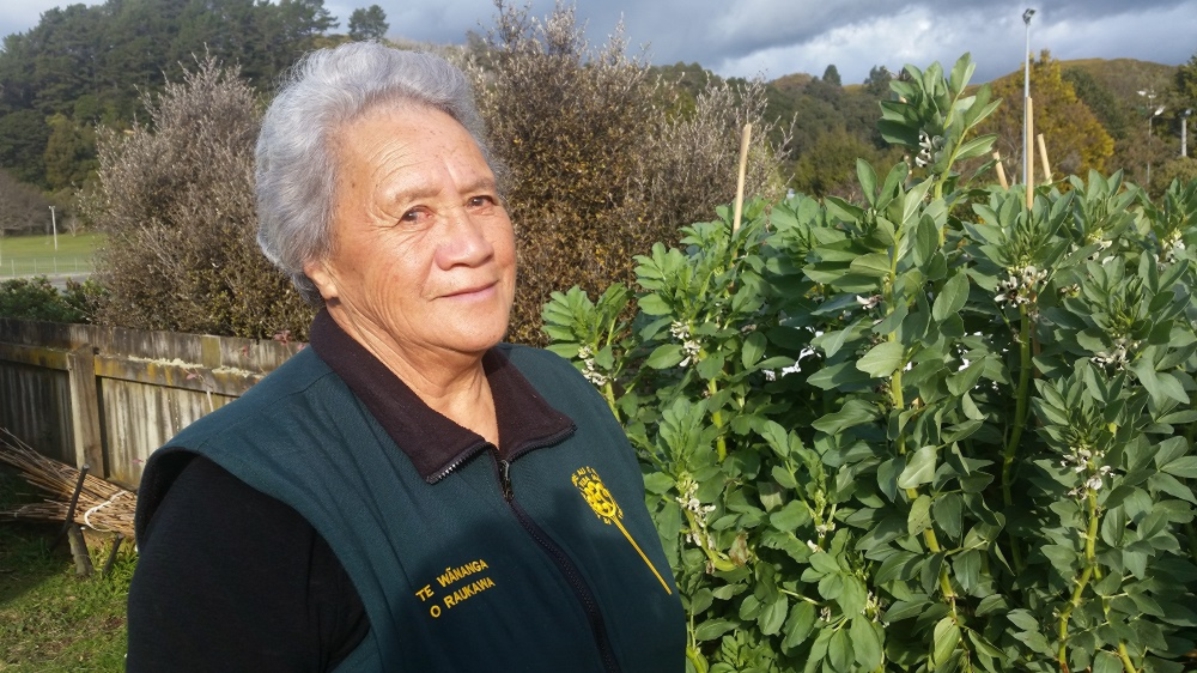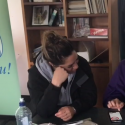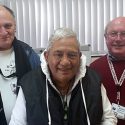Whaea Raiha Hunter Ellis likes to get her hands dirty.
If she’s not using them to coax fruit and vegetables from the fertile and well worked soil of Orongomai’s community garden, she’s using them to cut and peel the produce, turning what isn’t given away into preserves and jams which, in turn, are shared with those who need them.

“You have to know who you are and where you come from. Whakapapa is so important.” – Raiha Hunter Ellis
The 82-year-old kuia’s other major talent is listening, without judgement, to those who appreciate her wisdom and support. Her compassion and aroha for those in need have been honed over a lifetime in which, among many things, she bought up a family, gained a degree in her mid-60s in Mātauranga Māori, and spent the best part of a decade as a prison visitor. That part of her life began when she was invited to a graduation at Rimutaka prison.
Reconnecting with whakapapa
“I kept looking at the 60 men in that room and couldn’t help thinking ‘what a waste of life’. Then I was told that the last three men I’d hongied during the hariru were relations of mine from up north.”
“I knew all their grandparents but they, for whatever reason, had lost those connections.”
“After that, I visited every day. It was a real passion for a long time.”
Raiha says she was there to listen, not to judge and always felt safe no matter how heinous the crime of the inmate she was listening to.
“They’re all God’s people. They all need someone they can talk to.”
She visited inmates of all nationalities or cultural backgrounds but the majority were Māori and many were alienated from their culture.
“You have to know who you are and where you come. Whakapapa is so important.”
Garden a spiritual place
Raiha became involved with the Orongomai whānau when they facilitated her enrolment in the Mātauranga Māori course. Eventually she was asked if she would look after the community garden behind the old worker’s cottage used by the Marae’s social services team, and a new chapter opened up in her life.
“All sorts of people of all ages and backgrounds come here. Some do their community service hours here; others are clients of the social services team. Ex-inmates continue to visit me here and I’m so pleased to see them and proud when they’re doing well.”
“Most people just want to sit in this peaceful place, pull a few weeds, have a coffee and talk, or cry.”
“It’s a spiritual place for a lot of people and many seem to solve a lot of their own problems just by listening to themselves talk.
“I’m not their counsellor. I’m there to listen.”



